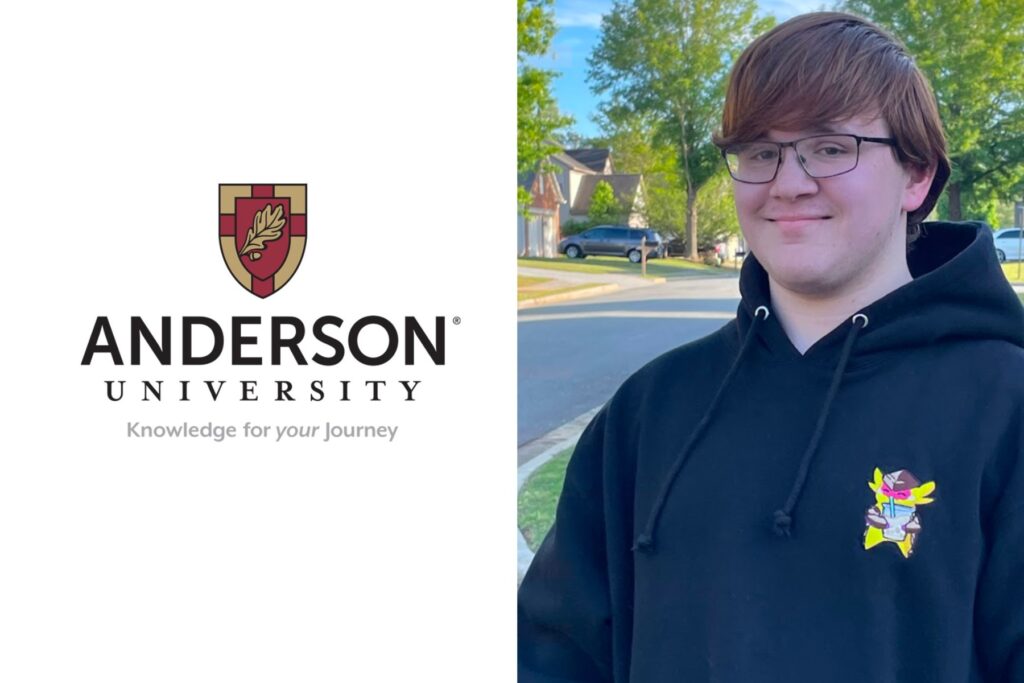Eric Watkins, a rising senior majoring in Cybersecurity, competed in the United States Department of Defense’s Cyber Sentinel CTF (Capture the Flag) and came out at number 21 in a field of 1,500-plus participants. Participants ranged from students to seasoned cybersecurity professionals.
For Watkins, the competition was a grueling eight hours, but he’s pumped that he placed so high. He explains that, going into the competition, he didn’t know any real specifics about the challenges.
“The only information we know going into any competition is what the general categories are going to be, so we’ll know if it’s going to be open-source intelligence, like basically finding information online in any form or fashion,” Watkins said. “My strategy is that I typically go one by one through the different categories and just see how much I can get done.”
The Department of Defense Cyber Sentinel CTF is on a tighter timeframe than the National Cyber League (NCL) competitions, which run three days, so Watkins had to think fast as he worked through the challenges.
Correlation One hosts the competition for the Department of Defense to recruit potential cybersecurity professionals. Details about the competition can be found online here.
The Anderson University Center for Cybersecurity presented its students with the opportunity to enter the competition and Watkins, who has an interest in possibly pursuing a cybersecurity career in the area of defense, signed up.
Going into the competition, Watkins was already nationally-ranked, being part of a team that National Cyber League (NCL) ranked number five for two consecutive semesters.
Growing up, Watkins was a serious gamer. Then his curiosity got the best of him.
“I was probably 13 or 14 years old, I was really big into gaming and also game coding. What I liked to do was modding (modifying) the games themselves, changing the fundamental code,” Watkins said. “I downloaded a bunch of mods from online from a lot of sketchy places that I shouldn’t have been downloading from, and one of those turned out to be a virus. It hacked my entire computer, got all the credit cards, all the phone numbers, probably more sensitive information that’s probably just floating out there in the dark web.”
Thankfully, Watkins’ family got back the money they lost in the attack. He was shaken by the experience, but it strengthened his desire to look into cybersecurity as a worthwhile field to enter.
“I love technology, love learning how to code, love learning how to make Windows and other operating systems do random cool stuff, and then it just became more prevalent in my mind that cybersecurity was the thing I wanted to do,” said Watkins. “Then when I found out Anderson University had a great cybersecurity program, I was like ‘hey this looks like a great opportunity.’”
A big interest for Watkins is penetration testing—basically ethical hacking.
“I would be contracted or hired by companies to audit their systems and find vulnerabilities before a hacker can find them and then submit these vulnerabilities to the companies that they can patch themselves,” Watkins said. “Basically, just being a hacker for a company, just without any malicious intent.”
Watkins appreciates the hands-on aspect of the Anderson University Center for Cybersecurity. In the Cybersecurity Lab at Anderson University, cybersecurity majors experience firsthand how cyberattacks work and how to perform offensive and defensive activities—all in a protected, but real digital environment.
Anderson University’s Center for Cybersecurity includes a wide range of technical and non-technical courses where students get hands-on experience doing real-world, current, employer-desired cybersecurity functions. These courses, the cybersecurity range and the additional cybersecurity competition practices give AU students the environment to be successful.
Cybersecurity Professor Brandon Grech stated that it takes more than the environment to be successful. It takes internal motivation and grit.
“It should be noted that nothing beats the intrinsic drive of students to be successful,” Grech said. “AU students, like Eric, refuse to give up. They do not take no for an answer. They are resilient, always learning, and complete the task at hand. There is no better way to show employers how prepared our students are than to place amongst the best of the best against students (National Cyber League) and seasoned professionals (DoD Cyber Sentinel).”
The Anderson University Center for Cybersecurity trains students to meet the unique demands of today’s cybersecurity industry. Degree tracks focus on cybersecurity with specializations in analytics, criminal justice, or mathematics. Details can be found online.

